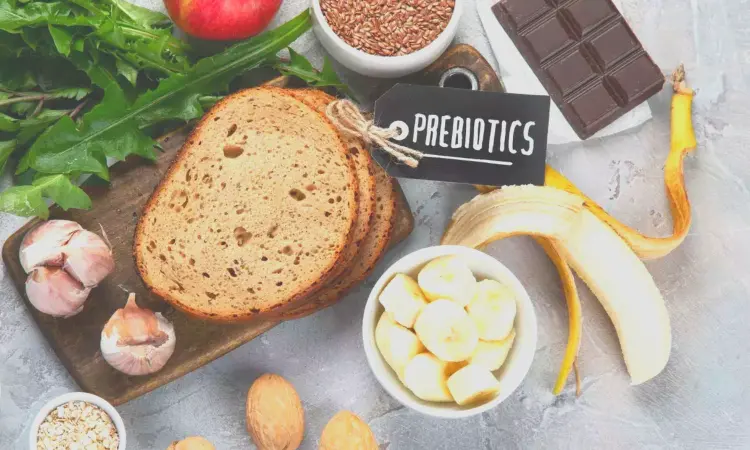- Home
- Medical news & Guidelines
- Anesthesiology
- Cardiology and CTVS
- Critical Care
- Dentistry
- Dermatology
- Diabetes and Endocrinology
- ENT
- Gastroenterology
- Medicine
- Nephrology
- Neurology
- Obstretics-Gynaecology
- Oncology
- Ophthalmology
- Orthopaedics
- Pediatrics-Neonatology
- Psychiatry
- Pulmonology
- Radiology
- Surgery
- Urology
- Laboratory Medicine
- Diet
- Nursing
- Paramedical
- Physiotherapy
- Health news
- Fact Check
- Bone Health Fact Check
- Brain Health Fact Check
- Cancer Related Fact Check
- Child Care Fact Check
- Dental and oral health fact check
- Diabetes and metabolic health fact check
- Diet and Nutrition Fact Check
- Eye and ENT Care Fact Check
- Fitness fact check
- Gut health fact check
- Heart health fact check
- Kidney health fact check
- Medical education fact check
- Men's health fact check
- Respiratory fact check
- Skin and hair care fact check
- Vaccine and Immunization fact check
- Women's health fact check
- AYUSH
- State News
- Andaman and Nicobar Islands
- Andhra Pradesh
- Arunachal Pradesh
- Assam
- Bihar
- Chandigarh
- Chattisgarh
- Dadra and Nagar Haveli
- Daman and Diu
- Delhi
- Goa
- Gujarat
- Haryana
- Himachal Pradesh
- Jammu & Kashmir
- Jharkhand
- Karnataka
- Kerala
- Ladakh
- Lakshadweep
- Madhya Pradesh
- Maharashtra
- Manipur
- Meghalaya
- Mizoram
- Nagaland
- Odisha
- Puducherry
- Punjab
- Rajasthan
- Sikkim
- Tamil Nadu
- Telangana
- Tripura
- Uttar Pradesh
- Uttrakhand
- West Bengal
- Medical Education
- Industry
Prebiotics effective for reducing HbA1c in patients with type 2 diabetes: Study

UK: Prebiotics are notably more effective in (HbA1c) hemoglobin A1C reduction than control in type 2 diabetes (T2D) patients, according to findings from a systematic review and network meta-analysis published in Nutrients.
There was, however, no significant difference in the effects of prebiotics and oral antidiabetic agents from controls regarding fasting blood sugar, body mass index, genera of gut bacteria examined, and post-prandial blood glucose.
There has been an increase in the global prevalence of type 2 diabetes. Lifestyle factors and genetic predispositions, such as poor nutritional intake and lack of physical activity, can lead to obesity and overweight, which are reported to be involved in T2D etiology. Furthermore, gut microbial diversity may be influenced by diets with high saturated fats and sugar and diets with low fibre, such as Western diets and cause an imbalance in the gut microbiome and a decrease in specific bacteria taxa.
A meta-analysis of randomised controlled trials (RCTs) has indicated that type 2 diabetes is linked with disequilibrium of the gut microbial community and gut microbiota dysbiosis in T2D pathogenesis. Therefore, nutritional interventions such as prebiotics have been used for maintaining glucose homeostasis and promoting eubiosis of the gut microbiome in patients with type 2 diabetes. Also, the role of oral antidiabetic agents in modulating gut microbiome dysbiosis may be a likely pathway by which these drugs regulate blood sugar balance.
Against the above background, Omorogieva Ojo from the University of Greenwich in London, UK, and colleagues aimed to investigate the effect of oral antidiabetic agents and prebiotics on the gut microbiome in T2D patients.
The authors used the PRISMA Extension Statement for Systematic Reviews and Network Meta-analyses to conduct this review. Searches were conducted in online databases for studies relevant to the study question from inception to 15 August 2022. The basis of the search strategy was the PICOS framework. A network meta-analysis allowed the estimation of relative treatment effects by combining direct trial evidence (e.g., treatment A versus treatment B) and indirect evidence. Also, a pairwise meta-analysis was conducted to determine the estimated effect sizes based on head-to-head comparisons of treatments and control conditions.
The study led to the following findings:
- Findings of the Network meta-analysis showed that prebiotics notably reduced HbA1c versus the control, and the SMD was −0.43, whereas there was no notable difference between the other treatments and control.
- Antidiabetic agents, including metformin and glipizide, also reduced HbA1C, although these were not significantly different from the control.
- Prebiotics promoted Bifidobacterium and Akkermansia; however, the improvements were not significantly different from the control.
- Metformin reduced the relative abundance of Bifidobacterium but increased Akkermansia and Lactobacillus, although the differences were not significant compared with the control.
- There was no significant difference in the effects of prebiotics and oral antidiabetic agents from controls concerning fasting blood glucose and BMI.
"The study's findings showed that prebiotics was significantly more effective than control in HbA1c among type 2 diabetes," the authors wrote. "However, there was no notable difference in the effects of prebiotics and oral antidiabetic agents from the controls regarding post-prandial blood glucose, fasting blood glucose, genera of gut bacteria examined, and BMI."
"More research is needed to fully understand the effects of oral antidiabetic agents and prebiotics in type 2 diabetes patients," they concluded.
Reference:
Ojo, O.; Wang, X.; Ojo, OO; Brooke, J.; Jiang, Y.; Dong, Q.; Thompson, T. The Effect of Prebiotics and Oral Anti-Diabetic Agents on Gut Microbiome in Patients with Type 2 Diabetes: A Systematic Review and Network Meta-Analysis of Randomised Controlled Trials. Nutrients 2022, 14, 5139. https://doi.org/10.3390/nu14235139
Dr Kamal Kant Kohli-MBBS, DTCD- a chest specialist with more than 30 years of practice and a flair for writing clinical articles, Dr Kamal Kant Kohli joined Medical Dialogues as a Chief Editor of Medical News. Besides writing articles, as an editor, he proofreads and verifies all the medical content published on Medical Dialogues including those coming from journals, studies,medical conferences,guidelines etc. Email: drkohli@medicaldialogues.in. Contact no. 011-43720751


